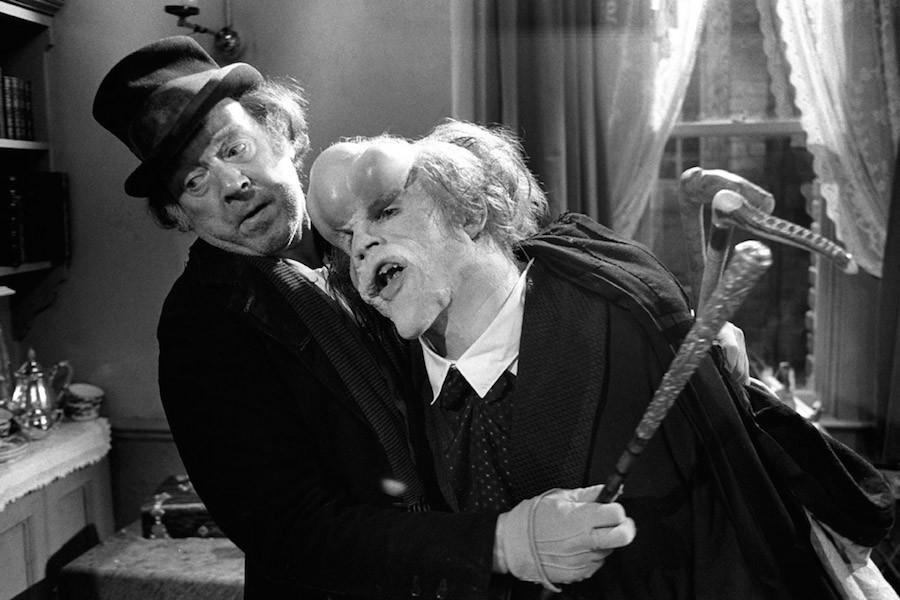A teary-eyed review: The Elephant Man
I never understood the hype with black and white movies. They’re a step backwards from where we are, and even during the early days of film, audiences did their best to mentally color in the frames. But nowadays, if a director does a film in black and white, they’re considered artsy and sophisticated. An example is David Lynch, who half the time nobody seems to know what he’s talking about, such as when he makes peculiar films like Eraserhead—don’t watch it kids, it’s a wild ride. However, there will usually be a diamond in the rough that a film-goer stumbles upon. Ladies and gentlemen, Lynch’s The Elephant Man is one of them.
Joseph Maverick, played by John Hurt, was born with a severe deformity due to acongenital disorder. He is the star of a “freakshow,” as his “owners” display him under the name “The Elephant Man,” and they abuse and beat him. The sight of the elephant man sparks the curiosity of Dr. Fredric Treves, played by acting icon Anthony Hopkins, causing him to take Joseph to the hospital where he works to treat him. There, Maverick finds care for the first time in his life and shows those around him that he is not an animal, but instead a human being. The Elephant Man is a wonderful movie with an ending that will make you cry your eyes out.
Over the years, the movie has received a lot of critical acclaim. Rotten Tomatoes (a.k.a. The Word of God) gave this movie a 90%, which, as far as reviews go, is pretty darn solid. Additionally, it was nominated for eight Academy Awards. It didn’t win any, but nominations mean something! Lynch’s masterpiece is a movie that can become really sweet at times. It’s one of the few movies that have ever made me cry, with acting that makes movie-goers connect with or at least feel something towards characters. In fact, Lynch’s storytelling talent is almost enough to make me forget that The Elephant Man was made in black and white. That is certainly something.














